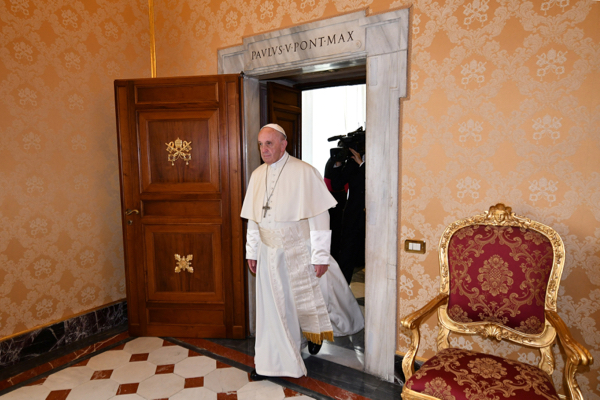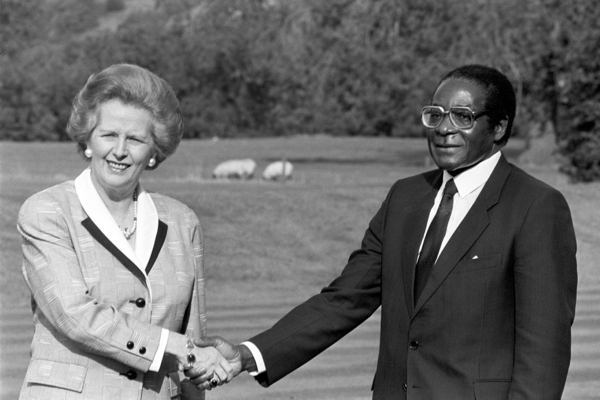Jubilant Zimbabweans took to the streets in celebration this evening as President Robert Mugabe offered his resignation just one week after the army detained him under house arrest. The announcement was made in parliament by the Speaker Jacob Mudenda, who read the resignation letter from Mugabe after impeachment proceedings against the president had already started. MPs roared in jubilation as the hearings came to an abrupt end.
The letter from Mugabe said that his decision was voluntary and that he had made it to allow a smooth transition of power. It did not mention who would take over from Mugabe but the Reuters news agency reported that former vice president Emmerson Mnangagwa will be sworn in as president in the coming days and serve until 2018.
The chief whip of ruling party Zanu-PF, Lovemore Matuke, told Reuters that Mr Mnangagwa would serve the remainder of Mugabe's term. Under the current schedule, the next general elections could be held as late as September 2018.
It was the recent sacking of Mnangagwa as vice-president to make way for Mugabe’s wife Grace to step into the role that triggered the events leading to Mugabe’s detention by the army last Tuesday evening. Today Mnanagagwa made his first public statement from a secret location believed to be in neighbouring South Africa. He urged Mr Mugabe to resign immediately, said he fled abroad two weeks ago when he learned of a plot to kill him, and he would not return until he was sure of his security.
UK Prime Minister Theresa May said Mr Mugabe's resignation "provides Zimbabwe with an opportunity to forge a new path free of the oppression that characterised his rule". She said that former colonial power Britain, "as Zimbabwe's oldest friend", will do all it can to support free and fair elections and the rebuilding of the Zimbabwean economy.
Archbishop of York Dr John Sentamu, who cut up his clerical collar on live TV ten years ago in protest at Mugabe's rule and pledged not to wear it again while he was in office, tweeted: "As always praying for the People of Zimbabwe&more so Now that it’s Govt&Zimbabwe Defence Force will keep Peace,the Rule of Law&Security for ALL."
Opposition leader Morgan Tsvangirai told the BBC he hoped that Zimbabwe was on a "new trajectory" that would include free and fair elections. He said Mr Mugabe should be allowed to "go and rest for his last days".
The US Embassy in the capital Harare said it was a "historic moment" and congratulated Zimbabweans who "raised their voices and stated peacefully and clearly that the time for change was overdue". South Africa's main opposition Democratic Alliance welcomed the move, saying Mr Mugabe had turned from "liberator to dictator".
Guinean president and current African Union chief, Alpha Conde, said he is "truly delighted" that former President Robert Mugabe has agreed to resign. Mr Conde also described Mugabe as a "great fighter" and an "African hero". He added that the presidential election should be held in 2018 and that the African Union will offer all its support to Zimbabwe for its organisation.
Not everyone was confident that the new administration would Prominent Zimbabwean opposition politician David Coltart warned "We have removed a tyrant but not yet a tyranny".
In the second city of Bulawayo and Ndebele-majority Matabeleland, Mnangagwa is not popular as he is widely regarded as the architect of the Gukurahunde massacres by the Fifth Brigade in the early 1980s that left 20,000 dead.
In 2008 he also managed the violent suppression of the Opposition after Morgan Tsvangirai defeated Mugabe in the first round of a presidential election, but was obliged to withdraw from the second round – and hand victory to Mugabe – to prevent further bloodshed at the hands of government thugs.
Zimbabwe’s Catholic bishops are keenly aware that a return to freedom and democracy is by no means guaranteed, especially given that the dramas of the past week have been around power struggles within the ruling Zanu-PF part.
Any transition must embrace “all Zimbabweans in their diversity and their oneness”, they said in a statement last Sunday. Normality could only be achieved through a “participatory process in a democratic way”. And in a robust appeal to avoid bloodshed, they affirmed: “All life is precious. The preservation of lives must be paramount.”
(Pic: File photo dated 01/10/1988 of Margaret Thatcher with Robert Mugabe, who has resigned as president of Zimbabwe. Credit: PA)



 Loading ...
Loading ...